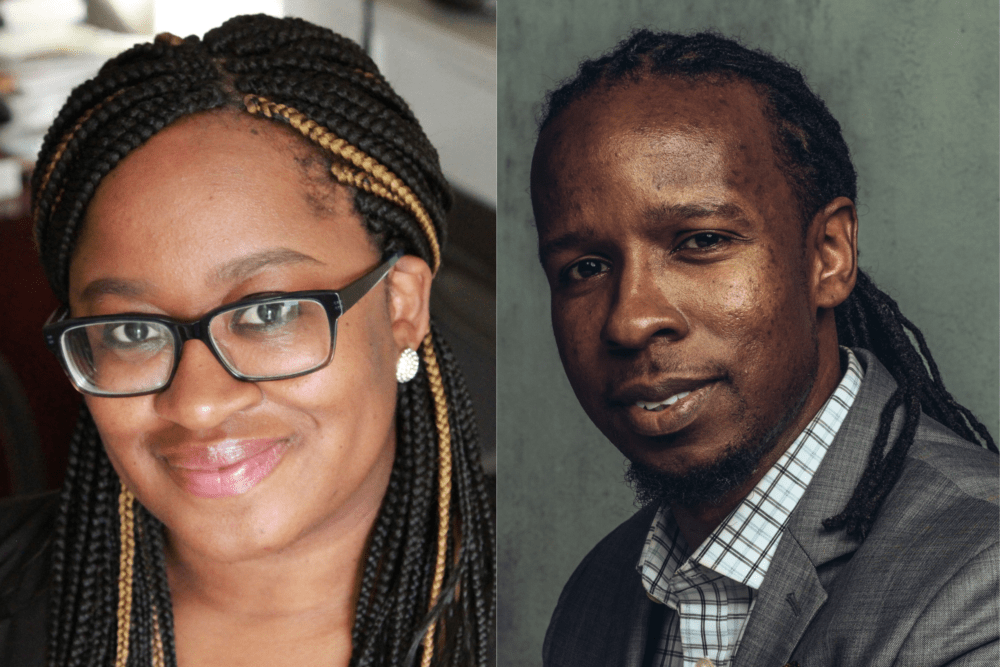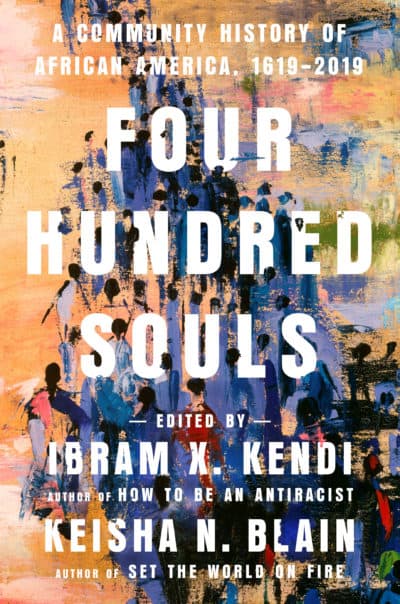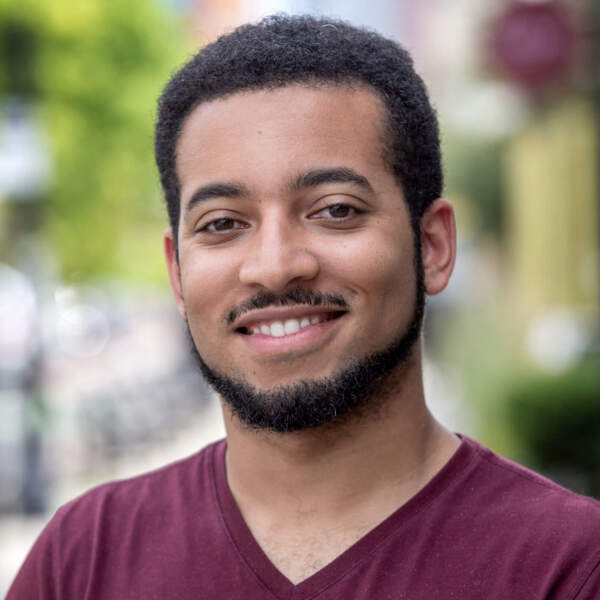Advertisement
'Four Hundred Souls' Creates 'Choir' Of Black American History

It's been more than 400 years since the first African slaves arrived on the shores of Jamestown, Virginia.
The new book "Four Hundred Souls" explores the history, trials and triumphs of their Black American descendants through a series of 90 essays and poems — and highlights their continuing struggle for racial justice.
WBUR's Morning Edition host Bob Oakes spoke with author and historian Ibram X. Kendi, who is one of the book's editors and the founder of Boston University's Center for Antiracist Research.
Highlights from this interview have been lightly edited for clarity.
Interview Highlights
On the inspiration and purpose of the book
We wanted this book to not only bring together a community, but literally make history, to ground history. We wanted people 100 years from now — 200 years from now — to be reflecting on, 'OK, this is what black folks were thinking at the 400-year mark.'
We executed [the book] this way to make the history much more accessible and diverse in many ways. So instead of a single person writing the history of a community, why not bring together a community to write the history of the community? In many ways, this group sounds like a choir.
"[R]acial inequity is not something that is inherent to humankind. Race as a construct and racism as a construct is a relatively modern and new phenomenon within the long history of humanity."
On Elizabeth "Mumbet" Freeman, the first slave to sue for (and win) freedom
We know that that suit was absolutely critical in Massachusetts, indeed, becoming one of the first states to basically end slavery. And oftentimes, it's easy for people in Massachusetts to look to a white, wealthy male at the time as being the driving force of Massachusetts' abolitionist history. But indeed, Martha Jones, who is a historian at Johns Hopkins, wanted to elevate one that in her suit and the role that it played in ensuring that Massachusetts would in many ways take the lead in this antislavery cause.
On the Boston-based Combahee River Collective

It was certainly one of my favorite pieces. So you had this group of largely black lesbian feminist women who were challenging the way in which homophobia operated within the black community, the way in which racism operated within the women's community. This group, which sort of was named after the Combahee River raid that Harriet Tubman led during the Civil War, is one of the more iconic organizations in history. But they emerged out of the racism and sexism and homophobia they were facing in Boston as they saw it within the movement in general.
On where the struggle for racial equity goes from here
It's really going to depend on what we do. And so, if we're willing to support the types of policies and policymakers that can eliminate racial injustice once and for all, then obviously we have a sense of where that's going to go. But if we're not because we're tired or because things are too hard or things are uncomfortable or we think that the people are the problem as opposed to policies, then then we're going to continue to be having these conversations for decades.
I mean, racial inequity is not something that is inherent to humankind. Race as a construct and racism as a construct is a relatively modern and new phenomenon within the long history of humanity. And it was literally constructed over time. And so anything that can be constructed or has been constructed can be deconstructed.
This segment aired on February 25, 2021.

